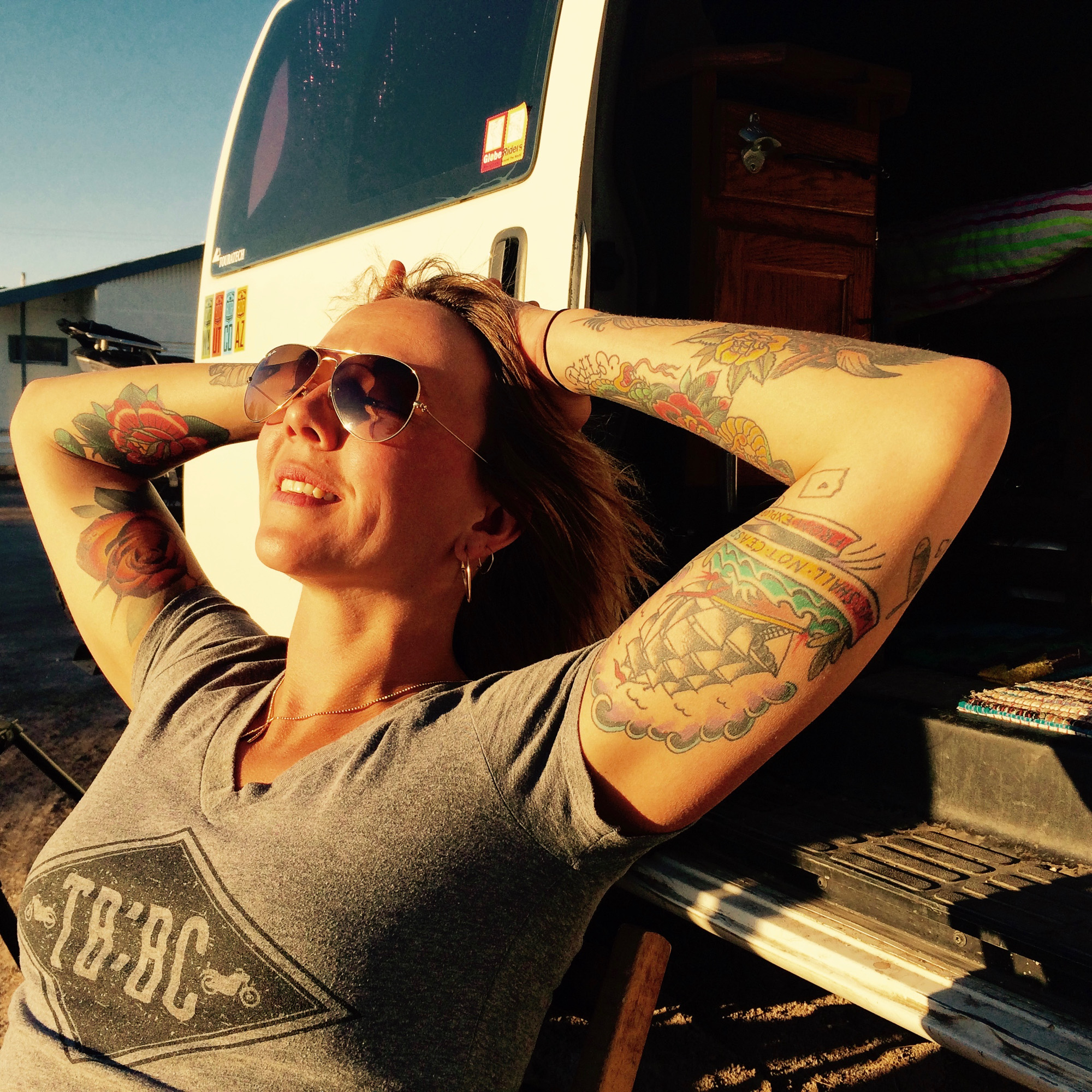Editor’s Note: This Eva Rupert interview was originally published in Overland Journal’s Summer 2023 Issue.
“Hey, I know you. You’re famous. I’ve seen you on TV.”
I stood at the entrance to a convenience store in northern Nevada, about to buy food for a week-long motorcycle adventure in the backcountry. As she spoke, the woman looked past me at my riding partner, whom I have dubbed, the Effervescent Eva Rupert. Standing at a commanding five feet ten inches, she has a smile that would light a city and the personality of Zig Ziglar. Eva broke onto the set in 2013 by filming some 70 days on the popular Discovery Channel reality show, Naked and Afraid. Her debut set her traipsing sans skivvies across Colombia and Madagascar, struggling to survive against nature with virtually nothing but a knife and an appointed partner who, in one episode, she casually called a “caveman gone wrong.”
“The situations were real,” says Eva of her television persona, but as a reality drama, she says the series made her look much more fragile and fearful than she really is. I would concur, having known her to face challenging terrain and falls, after which she snatched her adventure bike off the ground. As a bonafide, experienced adventure rider, a better mantra for the Eva we know today would be Geared Up and Fearless. If her time on the TV show did anything to change her, I would suggest it only cemented her durable, even-tempered determination to remain the person she chooses to be despite the circumstances. Smiling in the face of adversity is in her DNA.

And who is it that Eva Rupert chooses to be? Kindness is one of her most notable characteristics, right after her animated cheerfulness. She naturally lifts up others at every encounter. Is her encouraging demeanor a chosen mission in life, or does it just come naturally?
“It’s the butterfly effect,” she responds, with her typical crisp assuredness. “When you treat people nice [sic], the world becomes a better place.”
The world is indeed better for her participation. Looking past her camp at a darkening sky, she once stated, “It’s funny, those clouds over there are trying to look mean but not actually doing anything about it. They’re just sitting there.”
Even storm clouds are taken for their best intentions by Eva. All of her clouds, I would bet, have silver linings.
Eva is a survival instructor and outdoorswoman at heart, but she is also an exceptional motorcyclist. She has stitched her mark upon the two-wheeled overlanding community as a roving master off-road mixologist, expert at backcountry caffeination, and gas-station gourmet—no better minimalist connoisseur cook do I know. She utilizes her veritable cornucopia of talents teaching at four Overland Expos across the US, where her duties include marketing for and coordinating motorcycle activities for the event series. Simply letting her personality run free enhances the ambiance. Never satisfied to just dip her toe into her interests, Eva earned a college degree in film production, and her résumé includes everything from event planning to tattooing.
We see you as a well-liked public figure, but what was eight-year-old Eva like? Were you tough on your parents?
I like to think I was a pretty good kid, but I know I was a handful at times and gave my parents a run for their money. Being an only child, I spent a fair amount of time finding my own fun and adventures. I’m grateful that my parents granted me so much freedom. They encouraged me to be independent and always trusted me to make good decisions. But I had my moments.
When I was nine years old, I snuck into Mom’s makeup bag, took her red lipstick, and went out to ride my bike. Before coming back home, I stretched out my shirt to look all ratty, messed up my hair, and smushed up the lipstick to make fake cuts and wounds all over myself. I came home pushing the bike and pretending to look haggard. When Mom saw me coming up the driveway, she freaked out and ran over, thinking I was seriously hurt. She quickly realized that the cuts were fake and I had destroyed her entire tube of lipstick. She didn’t see the same humor in it that I did, and I got a proper scolding.
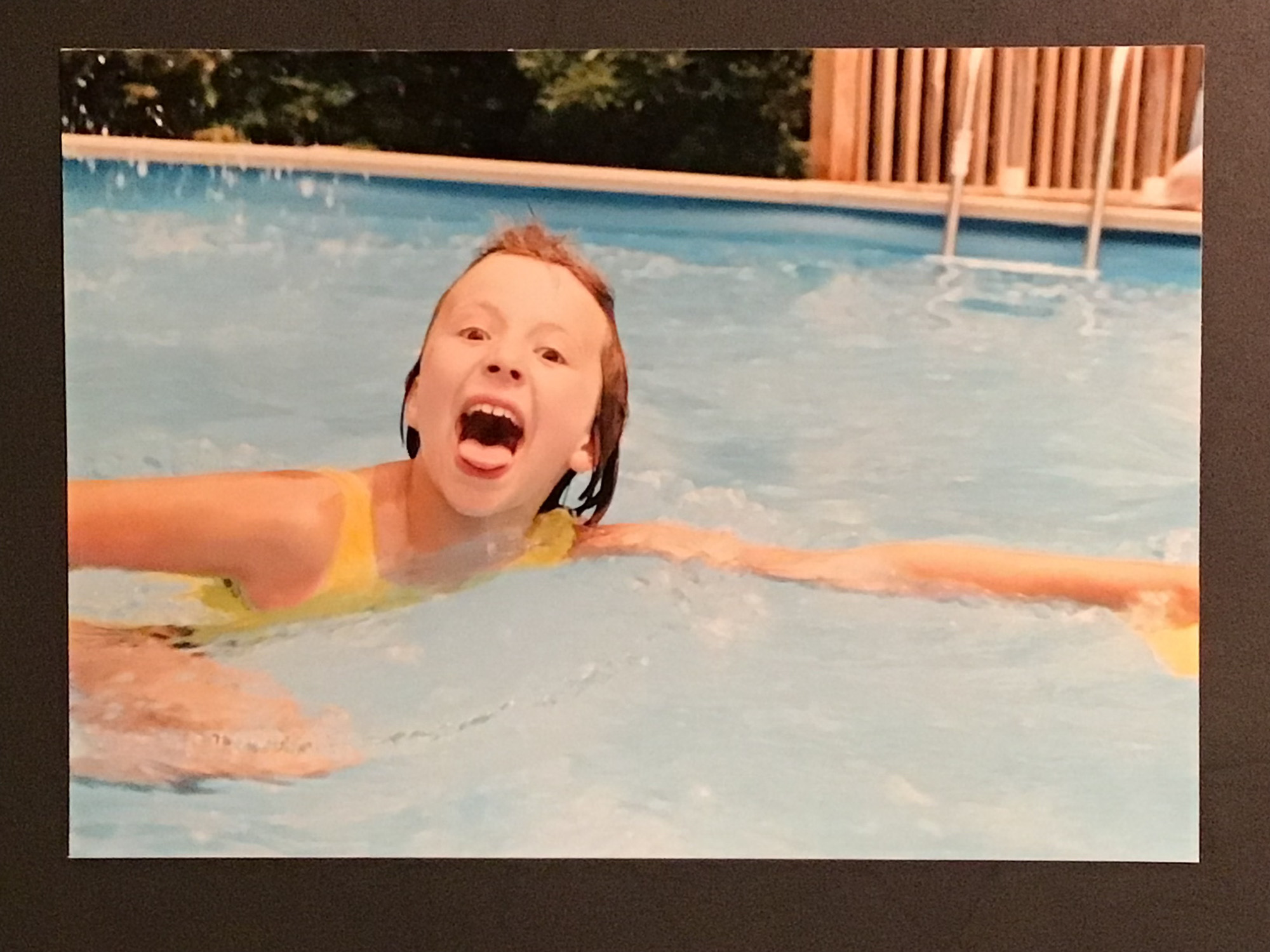
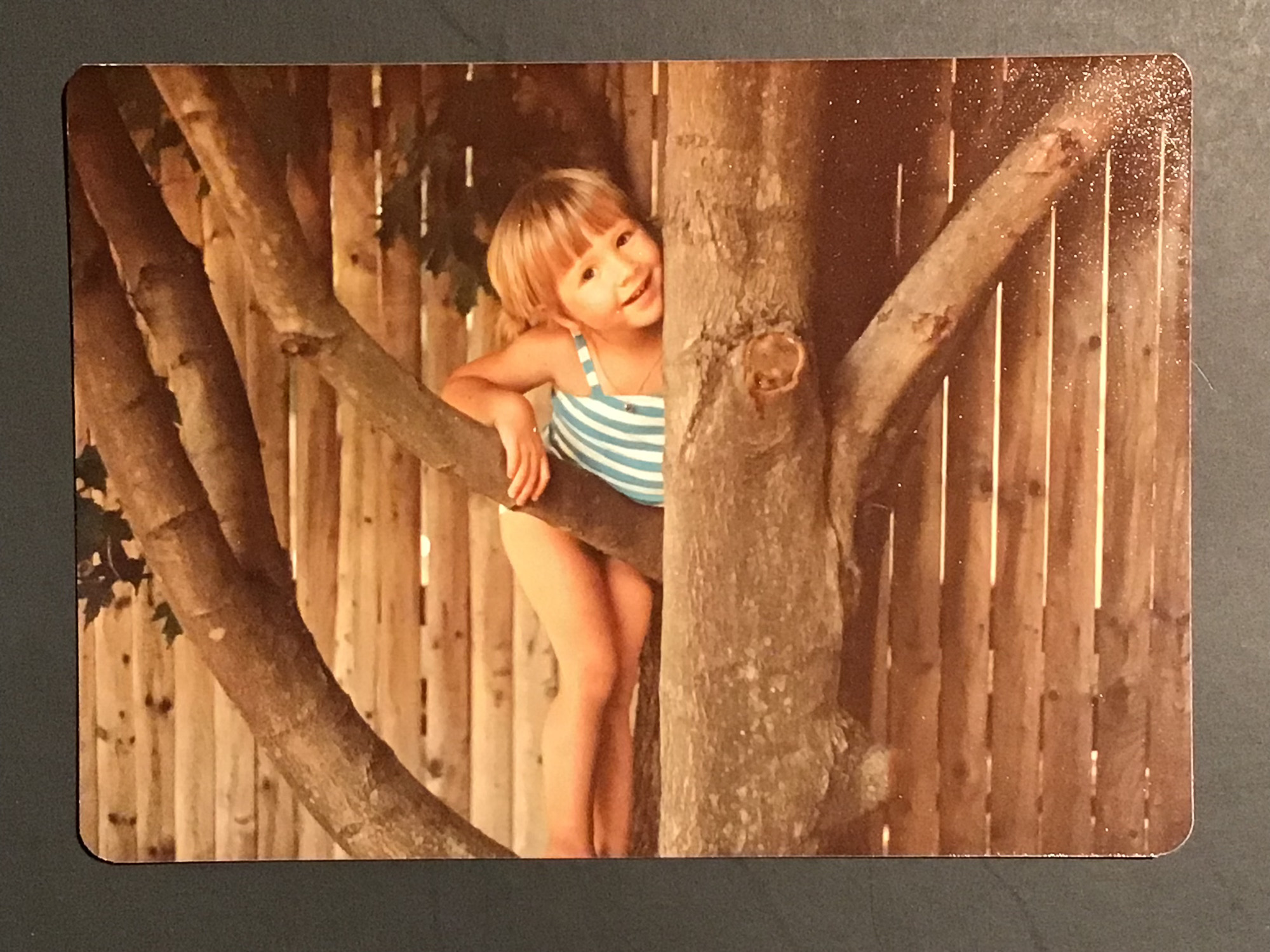
Where did you grow up?
I grew up in the suburbs, about an hour north of New York City. I’m of the generation who played outside voraciously, and that is certainly where my love for the natural world began. There was a scraggly patch of woods at the end of my street that was the stomping grounds for all of us kids in the neighborhood. We had a network of forts and hiding places and would spend countless hours, especially in the summertime, playing in what seemed like an epic wilderness. Back then, some kids would have to go home when the streetlights came on, others would be yelled for by their parents. But I was called in by my dad’s distinct, extremely loud whistle. It would pierce through even the densest suburban underbrush. As soon as I heard it, I knew I needed to hightail it home pronto.
Being near the city was also an important part of my younger life. My mom is an artist and spent a lot of time going to galleries in Manhattan. Traipsing around New York City was a regular part of my childhood experience: riding the subway packed with people, the smell of honey-roasted peanuts from the pushcarts on the streets, and the big energy. Growing up like that, I’ve always felt just as comfortable in the wilderness as I am in the heart of the city, a trait that serves me well now as a traveler.
I understand you butchered your first deer in a somewhat non-traditional way. Would you mind sharing how this went down?
In my early 20s, I started working at Great Hollow Wilderness School in New Fairfield, Connecticut. My job was taking students hiking and rock climbing. While there, I started learning about wilderness survival and primitive skills. I practiced making friction fires, spent hours in the woods tracking animals, learned about edible and medicinal plants, and tried to recreate aboriginal baskets and pottery techniques. At some point, I got my heart set on making buckskin, leather made in the traditional brain tanning method. One night, I saw a fresh deer kill beside the road and decided to pick it up. I wrestled it into the back of my truck and brought it back to my dad’s house with the intention of butchering it and tanning the hide. My dad is an outdoorsy guy and always encouraged my naturalist pursuits, but he’s not a hunter. I remember him being pretty grossed out seeing a dead deer sticking out of the back of his daughter’s truck.
I had no idea what I was doing, but I laid the deer out in the yard and managed to get the hide off fairly neatly, along with a pile of usable meat for the freezer. I eventually tanned the hide into a nice piece of buckskin, some of which I still have today.
This event sparked a unique relationship with the local sheriff, who would call you whenever there was a road kill. What inspired you to make yourself available for this recovery service?
Having processed my first deer, I started to realize that tons of animals got hit every day, and it seemed like a waste to just send them off to the dump. I gave my number to the local police department and ended up with a steady stream of roadkill. There’s so much you can learn from the processing. In addition to a better understanding of biology and the way people lived before modern conveniences, it taught me a reverence and appreciation for life that I don’t think I could have learned any other way.
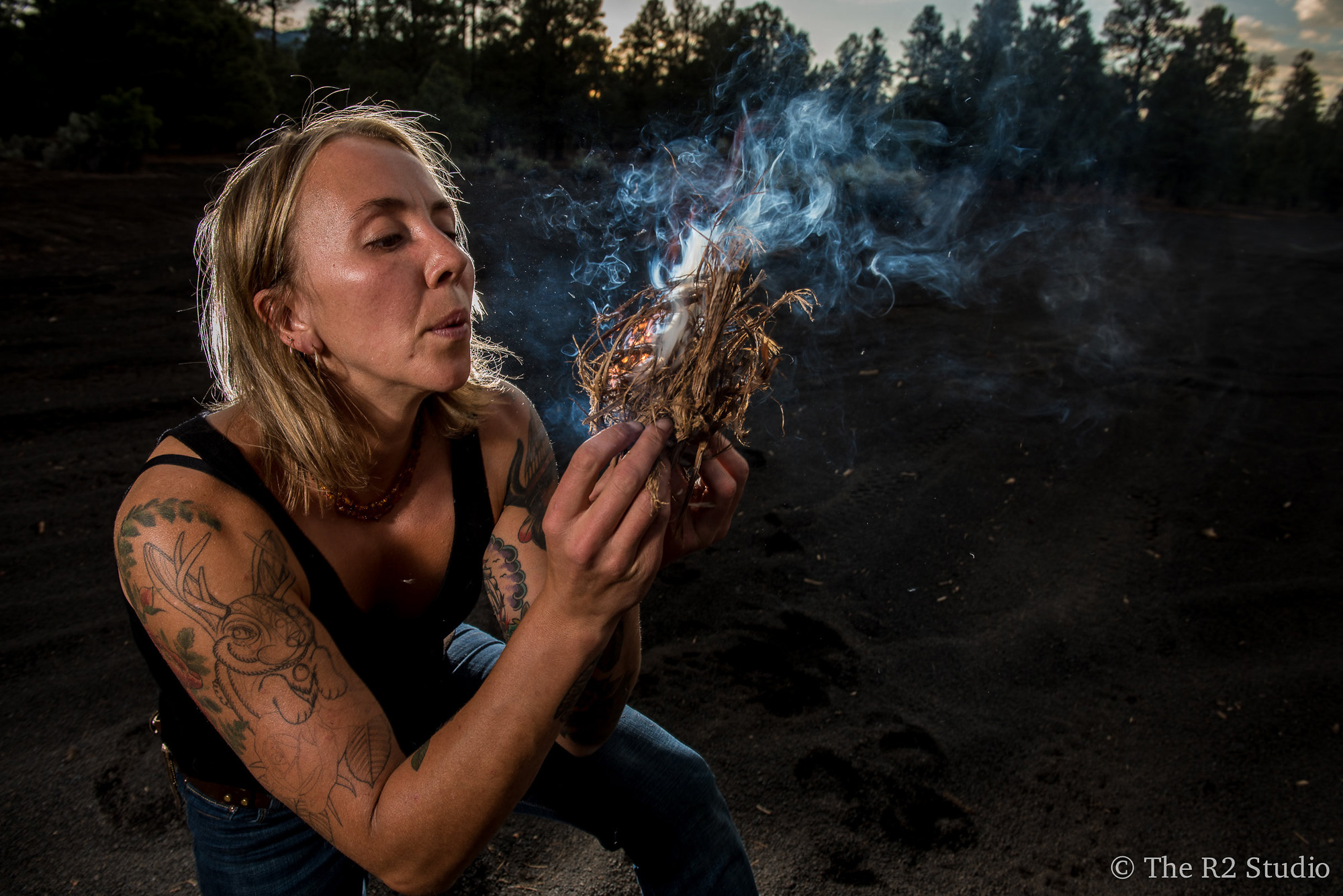
As a young woman of 24, you started the Goddess Program. You even have the word Goddess tattooed on your left foot. Can you share what motivated you and what this program was about?
Great Hollow Wilderness School was a non-profit organization with a grant earmarked specifically for girls’ outdoor programming. I was given the opportunity to design a program to specifically focus on the daughters of women who were victims of violence and abuse. I named it The Goddess Program for Amazing Young Women in the Wilderness—Goddess Program for short.
I had recently gotten out of a bad relationship myself. I wouldn’t say that it was truly abusive, but it gave me a lens through which to understand some of what women suffer in abusive relationships. At one point, my boyfriend at that time referred to another woman as a “goddess.” I remember saying to him that I, too, was a goddess. ‘No, you’re not,’ was his response. I was shocked at that statement because, at the risk of sounding conceited, it never occurred to me that I was anything less. I left him shortly thereafter.
I crafted the program to give the girls an opportunity to see themselves as strong, empowered individuals [with] a sense of inner strength to help avoid some of the struggles their mothers had endured. There’s no better builder of self-esteem than to spend time in nature, overcoming the fundamental challenges that wilderness backpacking and rock climbing present.
The Goddess Program continued every summer for seven years, ending only when I moved to Arizona full-time. I still keep in touch with several girls from the program, and they continue to inspire me with their accomplishments. To this day, I feel like I carry the same mission. I try to live my life in a way that inspires everyone, women and men, to know how amazing and strong they are.
You are quick of wit and tongue. Is this an acquired talent, or was it deliberately cultivated?
I’ve definitely got the gift of gab and have always been a talker. In the last few years, I have started doing more public speaking and emceeing at events, which suits me perfectly. I haven’t done much to intentionally cultivate my outward persona, but I have tried to groom myself so there is little discrepancy between who I am in public and behind closed doors. Being authentic and honest is of utmost importance to me.
I enjoy talking publicly and being on stage, but diving into rich conversations with friends, and even strangers, is my favorite—hearing peoples’ stories and learning what makes them tick. I’ve come to realize that being a good conversationalist is about listening. I try to lean into the conversation with open ears and full attention to understand what people are saying and feeling.
Nobody meets you who doesn’t notice your height, whether they mention it or not. You have certainly used it to your advantage on motorcycles, but you are also good with a sword. Break through your humility a bit, and tell us more.
As an adult, I love being tall—I consider it a great advantage in many ways, from riding adventure bikes to reaching things on the top shelf at the grocery store. That said, I didn’t always. I think tall people, perhaps women in particular, feel awkward about their height at some point. For me, that time was during middle school, but I fortuitously found a sport that helped me celebrate my height.
The summer before high school, I rode my bike to the neighboring town hall, where they showed movies on the weekends. After the movie, when I walked around back to pick up my bike, I saw all these people through the window of the town hall rec center with swords, wearing white outfits and helmets. I was instantly captivated and burst through the door, exclaiming, “Are you fencing? I want to do this.” The coach of the fencing club, who would eventually become one of my greatest mentors, sternly instructed me to come back in two weeks, assuming that my enthusiasm would dwindle and he’d probably never see me again. Needless to say, I came back and began the sport that changed the trajectory of my life.
Throughout high school, I started spending all of my evenings and weekends training, going to competitions, and, eventually, winning a national championship. Being tall is an advantage in fencing, allowing you to take long fluid steps and reach your opponent before they can reach you. The sport of modern fencing has three different weapons: foil, épée, and saber. I particularly took a liking to the saber because it was fast and less restrained than the other two weapons.
You are quite the human canvas. One tattoo, in particular, strikes my curiosity. It has something to do with loyalty and your best friend, Cass.
Several of my tattoos are matching pieces I’ve gotten with some of my best friends. One of my smallest tattoos is a little black and gray UFO with two people being beamed up into it. Cass and I have a lifelong pact that if either of us happens to get abducted—hey, it could happen, you never know—we’ll stop the spaceship and instruct the aliens to go back and get the other one of us.
And the little robot. Isn’t she an alter ego of sorts? Describe this little droid and your association with her.
The tattoo is of the robot named Eva from the Pixar movie WALL-E. I was not super familiar with the movie, but the robot is cute, shares my name, and I thought it would be fun. After having the tattoo for a couple of years, I rewatched the movie with a closer eye and realized that Eva the robot is a perfect role model for me. She’s an adventurer on a mission and pretty intense, blasting things with her plasma gun on occasion, but has a kindness to her that’s sweet and endearing.
I like to think I strike a similar balance in my life. I live for adventure, and when something sparks my interest, I can be laser-focused and pretty intense. But, like Eva the robot, I strive to be kind and care deeply about people.
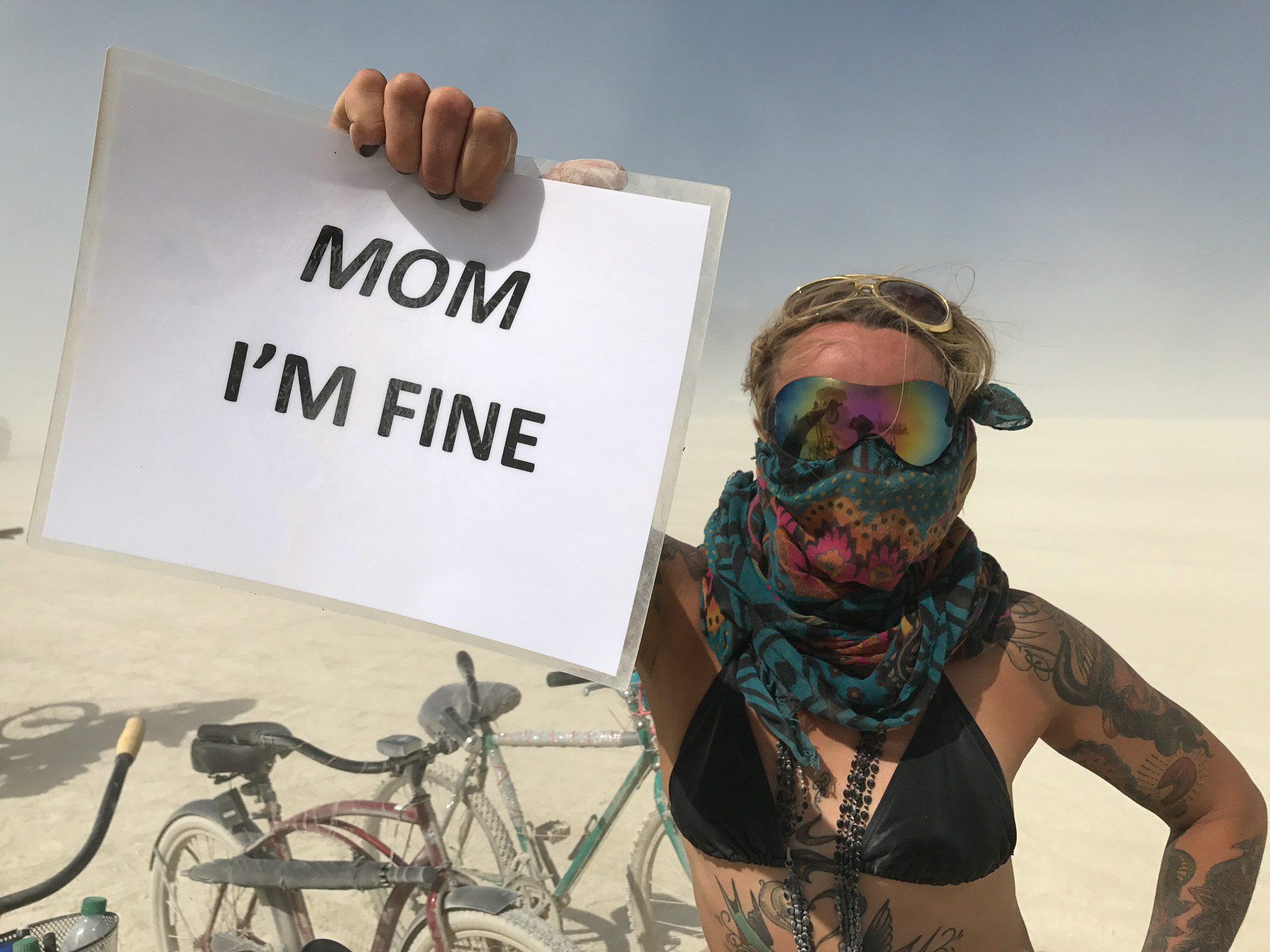
You weren’t always on the receiving end of the ink needle. You are also an artist. Was that a passing fancy?
I’ve always had an artistic streak and worked as a tattooer for a couple of years. I’m no Leonardo da Vinci, but I’ve always loved drawing and painting. The thing that drew me to tattooing was the idea that you could get paid to create art. I started out on myself and friends and, eventually, paying clients.
Ultimately I realized that I liked spending time with the clients even more than the artistic side. Tattooing requires a full-time commitment of many years to master, and it didn’t end up being a long-lasting career for me. I could certainly see myself coming back to it someday when I settle down a bit and feel like I can dedicate myself to the craft again.
“Mixologist,” now there’s a term. It’s no surprise you didn’t stop at bartending. What led to your becoming one, and how has being a mixologist influenced your life?
I think mixology just gets thrown around as a catchy word for bartending. When it comes to making drinks, I love combining flavors and spirits to create unique cocktails. One of my favorite things is to make fancy cocktails out in the backcountry after a long hard day of riding. I call it Off-Road Mixology, and I have a collection of delicious recipes that are easy to make at your campsite. It’s an exercise in contrast—bringing a taste of luxury to a rugged setting.
Sterling Noren, famous for his production of the film Run Free, the true story of Caballo Blanco, and numerous Backcountry Discovery Route (BDR) films, is clearly the love of your life. You are both busy and on the road a lot, but you have also partnered in ownership of the popular and historic Jonquil Motel in Bisbee, Arizona. How did the idea of owning this business together come about?
Love of my life, indeed! Sterling is the absolute best, and we make a great pair. Between our shared interests and mutual respect for one another, we have the easiest relationship I’ve ever experienced. We both love traveling and adventure riding, but we connect on a philosophical level that serves as a foundation for seamless communication.
We never planned to have a business together, but when we were looking for a place to live in Bisbee, we came across an old motel for sale. Through a series of serendipitous events, we ended up buying the place, and now it is our home as well as our business. We live in the house on the property, the motel office is our living room, and we have guests coming and going every day.
We have an ongoing conversation about our future vision while staying realistic and grounded with the nitty-gritty of daily operations. Sterling comes from a family of craftspeople and woodworkers, so he does many of the construction projects and maintenance on the property. With all the event planning and bar and restaurant work I’ve done over the years, I run the front of the house, staffing, reservations, and marketing. We are both hard workers, which is essential, especially considering that we both have day jobs in addition to the motel.
You and Sterling travel extensively together on both two wheels and in your purpose-built van. Do you have a preference?
In addition to riding together, Sterling and I travel in a 1999 Chevy Express 2500 with a Quigley 4×4 conversion. When we first met at a BDR fundraiser, Sterling was driving the van with his BMW F 800 GS on a hitch tray in the back. As much as I enjoy traveling in the van and trading time behind the steering wheel with Sterling, it is his build all the way. From the Frankensteined contractor’s rack that doubles as our roof deck to the solar and power management system to the modular interior, Sterling built out virtually the entire vehicle himself.
The van is cozy and homey, ideal for slow travel and mixing a bit of luxury into your adventure. I also love the purity and simplicity of motorcycle travel. For me, motorcycling gets at the essence of adventure—you’re exposed to the elements, directly in contact with the environment, and immersed in the culture around you. In contrast, the van, with its long range and ample supplies, allows us to be out in the backcountry for longer periods. There’s a time and place for each kind of travel, and I love that both facets of overlanding are a part of my life.
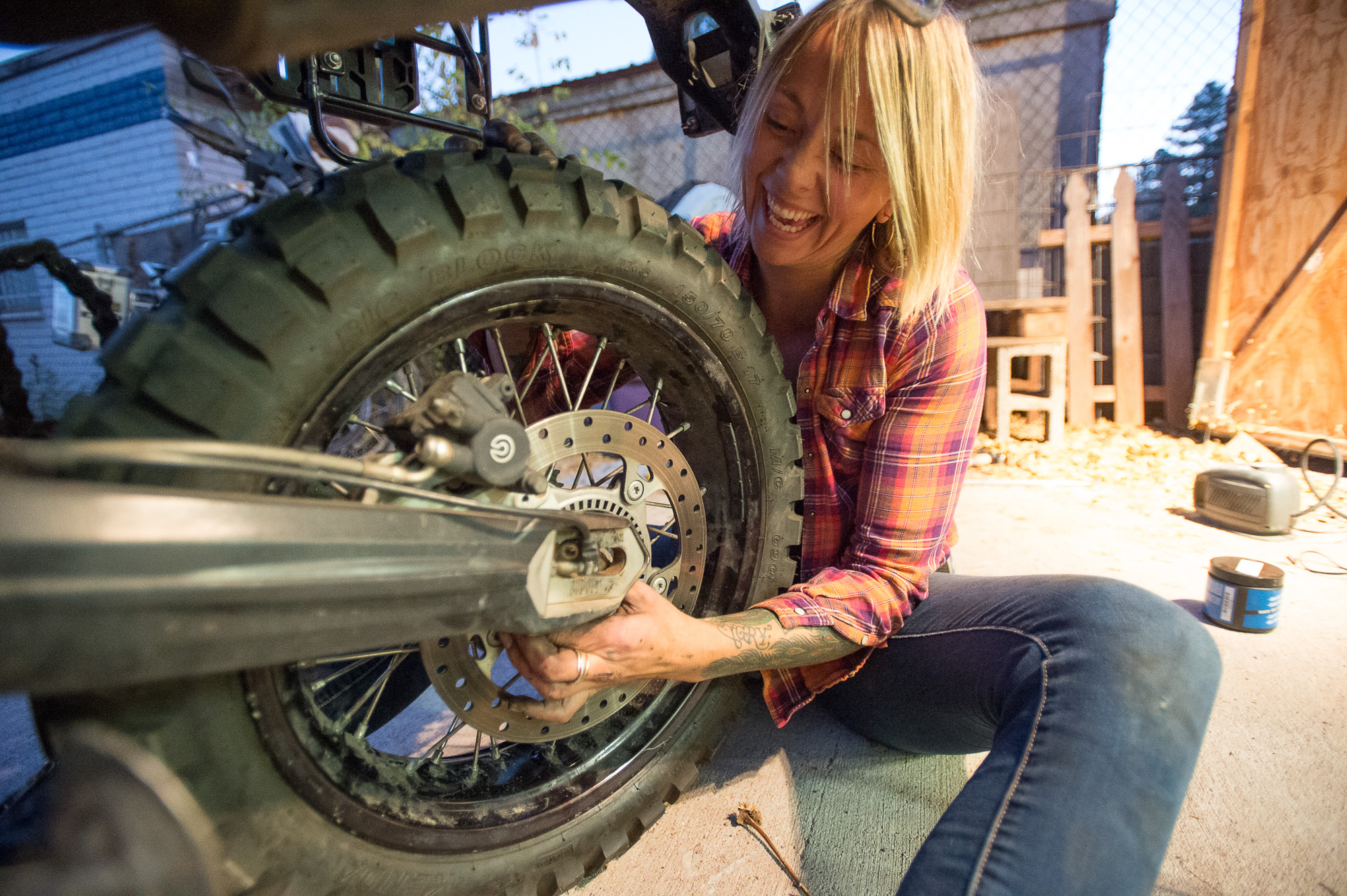
In addition to your history as an explorer, you have been involved in the overlanding community through Lodestone’s Overland Expo in some enviable ways. Not only are you the face of the motorcycle scene at all of their events, but you have built two of their Ultimate Two Wheel Overlanding rigs. Tell us about these machines and your mechanical skills.
I started riding on a whim in my early 20s when I got my hands on a 1979 Honda CB750. Right around the same time, I got a job at Rizzo’s Garage in Sherman, Connecticut. I didn’t have any training or experience, but the guys at the shop took me under their wing, and I started doing oil changes, swapping out snow tires, and doing basic repairs. While working at Rizzo’s, in addition to working on my old motorcycle, the 1994 Toyota T100 I was driving became an ongoing learning project. I would often have the salt-rusted T100 up on the rickety lift in the back corner of the shop for days at a time, repairing parts and keeping the truck running. The guys at the garage were great mentors and had a way of giving me just enough information to keep on track without taking over my projects.
I stopped working at the garage only because the West was calling, and I decided to leave the East Coast for good, but I often think about that time as a ‘sliding doors’ moment. Looking back on it now, I could have happily pursued a proper career as a mechanic. And, who knows, it might still be something that I’ll dive into more seriously in the years to come.
I’ve been working with Overland Expo since 2017, and in 2021, we launched the Ultimate Overland Build project. I’ve had the honor of being in charge of the motorcycle builds and have done most of the work on them myself. Between the team at Overland Expo and our industry partners, we’ve created some really fun and functional vehicles.
I am patient with myself during the process, and I like the empowerment that comes from completing a job. Because I got to learn in a truly experiential way at Rizzo’s, I’ve taken that same style of learning into the wrenching projects I tackle today. I have enough skills under my belt to know what I can complete competently, and I’m knowledgeable enough to know when to call in professional help. I treat each project like a puzzle and take my time figuring things out. Once the job is completed, I always feel fantastic about what I’ve accomplished.
You have incredible energy and a tremendous capacity to produce, even finding time to put on your own events, and you write on a regular basis. When do you rest?
Rather than working a regular Monday through Friday schedule, I far prefer to work for several weeks straight and take my time off in longer blocks. Working in bulk like that lets me dive deep into whatever I’m doing and then decompress. That’s not to say I don’t take days off here and there, but for the most part, batching my work time and playtime is a strategy that seems to suit me.
I have strong workaholic tendencies, but so much of what I do, I love. It’s hard to tell what is work and what is purely for pleasure sometimes. I’m pretty sure there’s nothing better than going for a motorcycle ride, writing a story about it, heading to a different state to produce an event, and then returning home to host guests at the motel. It doesn’t always feel like I’ve got things in perfect balance, but I’m getting there.
My secret weapon for being ultra-productive and still feeling rested is the coffee nap. A few times a week, around 2:00 p.m. I make a strong cup of coffee, drink it, and set an alarm for 15 minutes. By the time I wake up from my nap, the caffeine has kicked in, and I’m fired up and ready to go again.
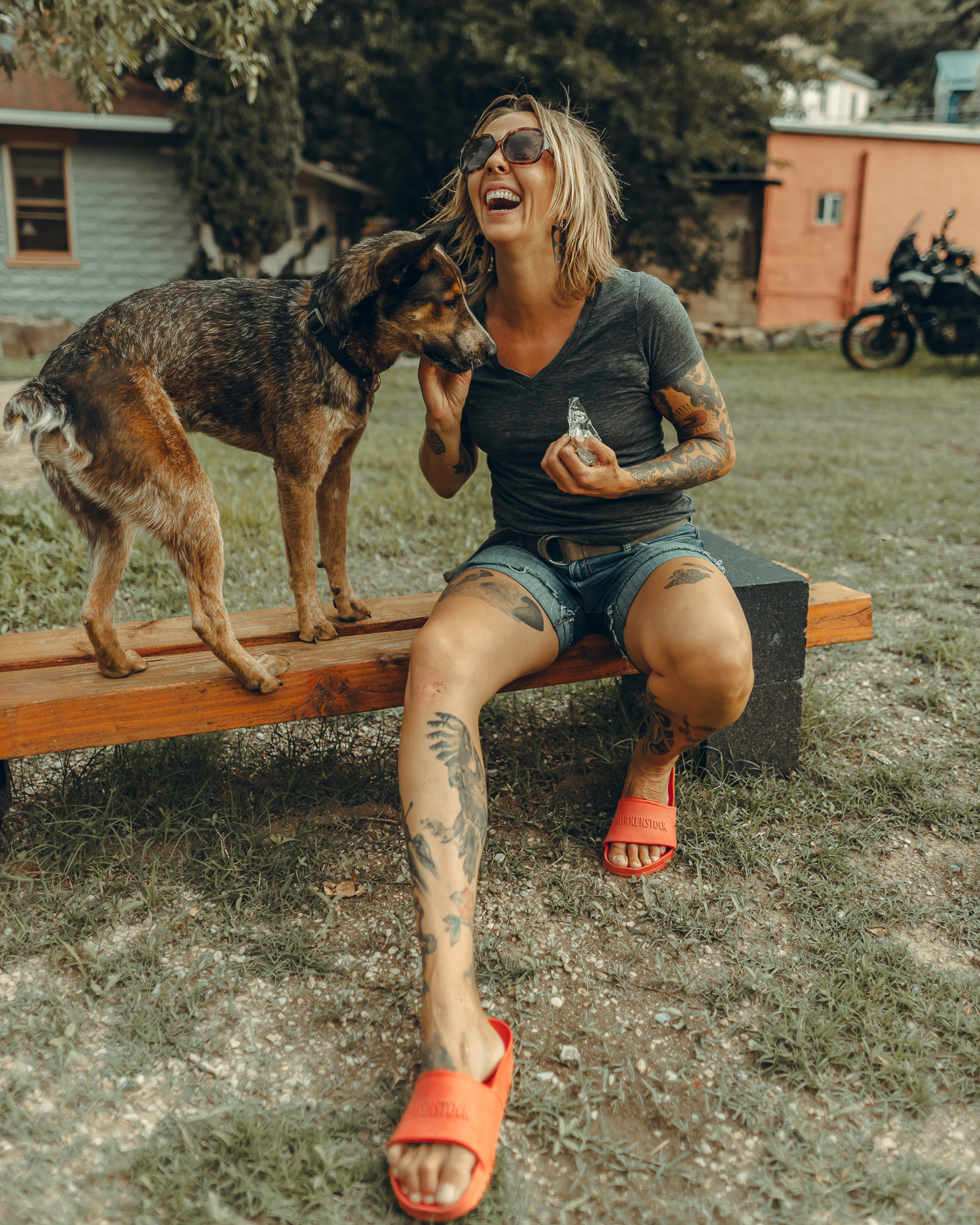
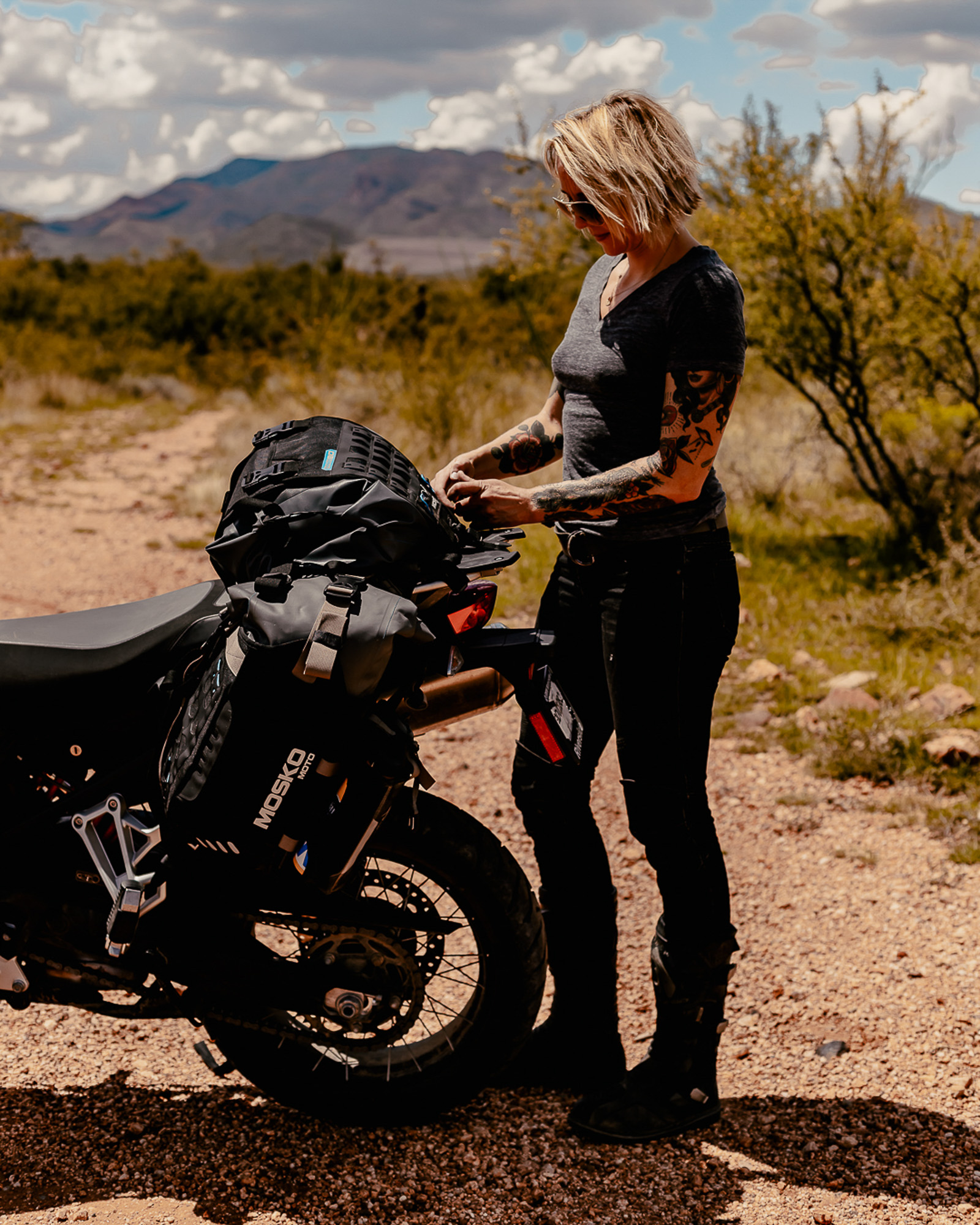
We can learn a lot about you from Instagram and Google, but what don’t we know about you, including what is important to you?
I don’t know how I’ve made it this far without mentioning my dogs: Ace, Norman, and Sprocket. They’re all herding breeds, heeler mixes, and they require a ton of attention and exercise which forces me to get outside and keep active every day.
What else is important to me? That’s a tough one, but here are a few random facts.
I’m allergic to shellfish, but I love trying weird foods—organ meats, raw things; the stranger, the better.
I’m obsessed with Bisbee and will probably live here for a very long time. If I were forced to move somewhere today, however, I would go to Baja, Mexico, in a heartbeat.
I think of myself as a connector and often say that I’m the person who knows the person that you need to know. I love having a close circle of friends, but I also love being a part of far-flung communities.
I’ve always considered myself a feminist, but I’ve realized recently how loaded that word is for some people. I’d like to reclaim feminism as something that doesn’t involve putting men down in the process of empowering women.
Years ago, one of my best friends, Josh, and I rode our tiny vintage Honda motorcycles from California to New Mexico. I was on a Trail 90, and Josh had a CB125. To this day and thousands of miles later, that is still one of my all-time favorite adventures.
Sterling and I go to Burning Man together every year. It is an incredible exercise in self-reliance disguised as a world-class art event and party.
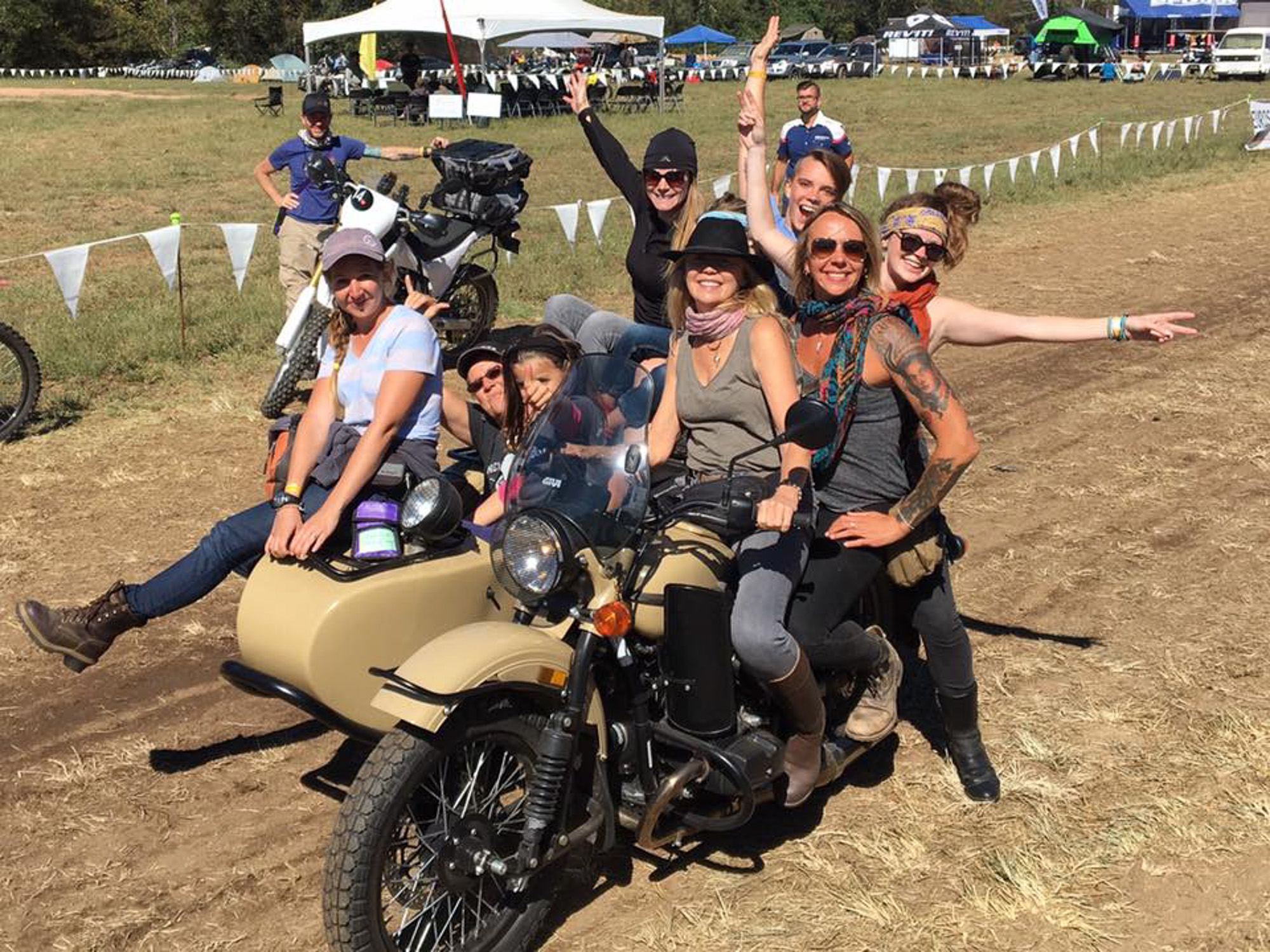
Looking ahead, what adventures do you see on the horizon? Do you have any aspirations for a round-the-world journey, or are there other dreams yet to be fulfilled closer to home?
Short term, I’m honing my map and compass navigation, polishing up my four-wheel driving skills, and taking on an entirely new kind of challenge at the Rebelle Rally with my friend and coworker, Azure O’Neil. The Rebelle is an all-woman event, and the spirit is as much about camaraderie as it is competition. I’ve wanted to participate in the Rebelle for years because it focuses on precision navigation and problem-solving without the use of cellular or GPS technology. Azure is a world traveler, fellow motorcyclist, and wonderful human—I’m thrilled to share this challenge with her.
Of course, I’ve got my eye on a RTW trip someday, but I am just eager for more slow travel. That’s not to say actually riding slowly, but not feeling rushed. Adventure riders often overestimate the distances we need to cover to have a great ride. My most satisfying trips happen when I manage my mileage expectations in favor of a richer experience. I like having plenty of time to take the detours and sink my teeth into the places that strike my fancy.
My friend Cass and I are putting together plans for a fly-to-ride in Northern Europe with some backpacking and rock climbing mixed in. Southeast Asia and North Africa are high priorities for me [but] the list goes on and on.
How would you most like to be remembered years from now?
I hope to be remembered as a good friend, first and foremost. I selfishly like to think that I’m tough as nails with a heart of gold, but at the end of the day, I just want to live a full, awesome life and inspire a few others to do the same.
Our No Compromise Clause: We carefully screen all contributors to ensure they are independent and impartial. We never have and never will accept advertorial, and we do not allow advertising to influence our product or destination reviews.


